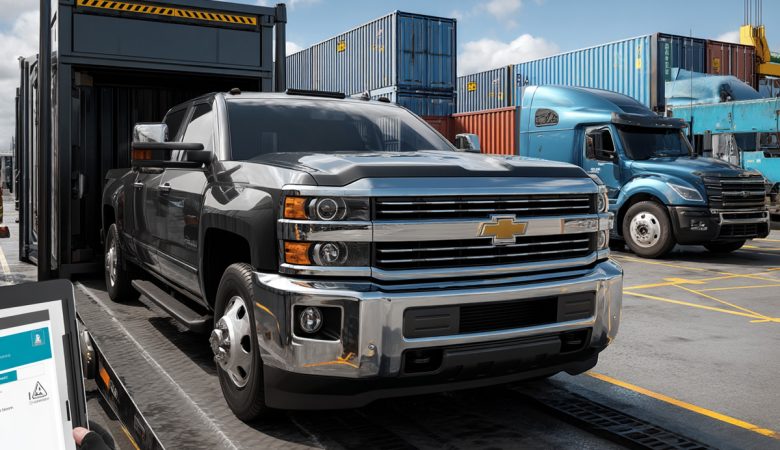When shipping a car, it’s really important to have proper documentation, both domestically and internationally. These documents make sure your vehicle adheres to legal and customs regulations and steer you clear of any liabilities. In this guide, we’ll explore the key documents required to ship a car and how you can prepare for a smooth process.
1. Vehicle Title and Ownership Documents
The vehicle title document is the most important document you’ll need to show proof of ownership. Without it, a car transport company won’t be able to ship your vehicle.
- Lienholder Car Title: Required if your car is financed or leased from a bank/financial institution. A Letter of Lien Release from your lender may be needed.
- Duplicate Title: If you have lost your title, request a duplicate from the DMV before arranging auto transport to avoid shipping delays.
- Salvage Title: If your vehicle has been declared a total loss by an insurance company, this title type may be required for shipping.
- Rebuilt Title: A rebuilt title might be needed to transport cars that have been repaired after being declared a total loss.
- Bill of Sale: Required to show the vehicle value and export/income taxes are based on this.
2. Bill of Lading
A Bill of Lading (BOL) is a legal document that operates as a receipt and contract between you and the car transport company. It includes:
- Your vehicle’s details (make, model, VIN, and condition before shipping).
- The destination and delivery terms.
- Legal protection in the event of disputes or damage.
If shipping overseas, a shipping bill of lading is necessary for customs clearance. Make sure you review the BOL carefully before you sign.
3. Proof of Identification
To keep in line with transport regulations, you must have valid identification. In most cases, shipping companies will require the following:
- A driver’s license or passport.
- A notarized permission letter might be required if someone else is shipping your car on your behalf.
These will ensure that your vehicle is being shipped legally.
4. Shipping Insurance
Car shipping insurance protects your investment in the event of vehicle damage during transit. Here are some of the types of insurance you should know:
- Domestic shipping: Coverage for damage from weather, accidents, or from handling.
- International car shipping insurance: Required for shipping internationally, as coverage differs from United States insurance standards.
Remember to ask for car shipping quotes that come with insurance options, as policies differ across providers.
5. Lienholder Authorization and Financial Approvals
If your car has an active loan or a pre-existing lien, the lender has a legal claim until the loan is cleared. In such a situation, the shipping company will need explicit permission from the lender to transport the car. This is confirmed through a lienholder authorization letter. If you are unsure as to whether your car has a lien, get in touch with your lender before sorting transport.
6. Customs and Export Documentation
For international car shipping, specific documents are necessary. These typically include:
- Vehicle Title Document: This acts as proof of ownership.
- Bill of Sale/Vehicle Estimated Value Report: If applicable.
- Export Declaration: Used for customs clearance.
- Power of Attorney: If someone else is handling the shipment.
- License plates: Some countries require them to be surrendered before export.
Some countries have strict emissions and modification laws, so be clear on customs regulations ahead of time to minimize delays.
7. Additional Documents
Depending on your situation, there are some additional documents that may be required:
- Proof of insurance: Some companies will need evidence of existing car insurance.
- Power of Attorney: If another person is handling shipping for you.
- Customs clearance forms: These are needed for international transport (requirements vary by country).
Always check with your car shipping service provider to ensure you have the correct documents needed to ship a car overseas or domestically.
8. Special Considerations
The cost to ship a vehicle can depend on a number of factors like distance, shipping method, i.e., open vs. enclosed transport, and the time of year, as shipping costs fluctuate with demand. If you plan on shipping long-term care insurance documents alongside the car, make sure that they are securely stored. Additionally, vehicles will need to be loaded and unloaded carefully, so reviewing the shipping contract’s liability terms is crucial.
Conclusion
Ultimately, understanding what documents are needed to ship a car will ensure a smooth shipping process. Let’s sum up the documents we’ve covered in this guide:
- Car title document or certificate of title for a vehicle.
- Bill of lading (or bill of lading form for international shipments).
- Proof of identification (driver’s license or passport).
- Shipping insurance (including international car shipping insurance, if needed).
- Lienholder authorization letter (if the car is financed).
- Customs and export paperwork for international shipments.
Using a reliable car shipping service like EasyHaul ensures compliance with legal requirements. our customer service for guidance if you have any questions. Preparing the proper car shipping documents in advance will ensure the process is smooth and cost-effective.





Leave a Reply
You must be logged in to post a comment.